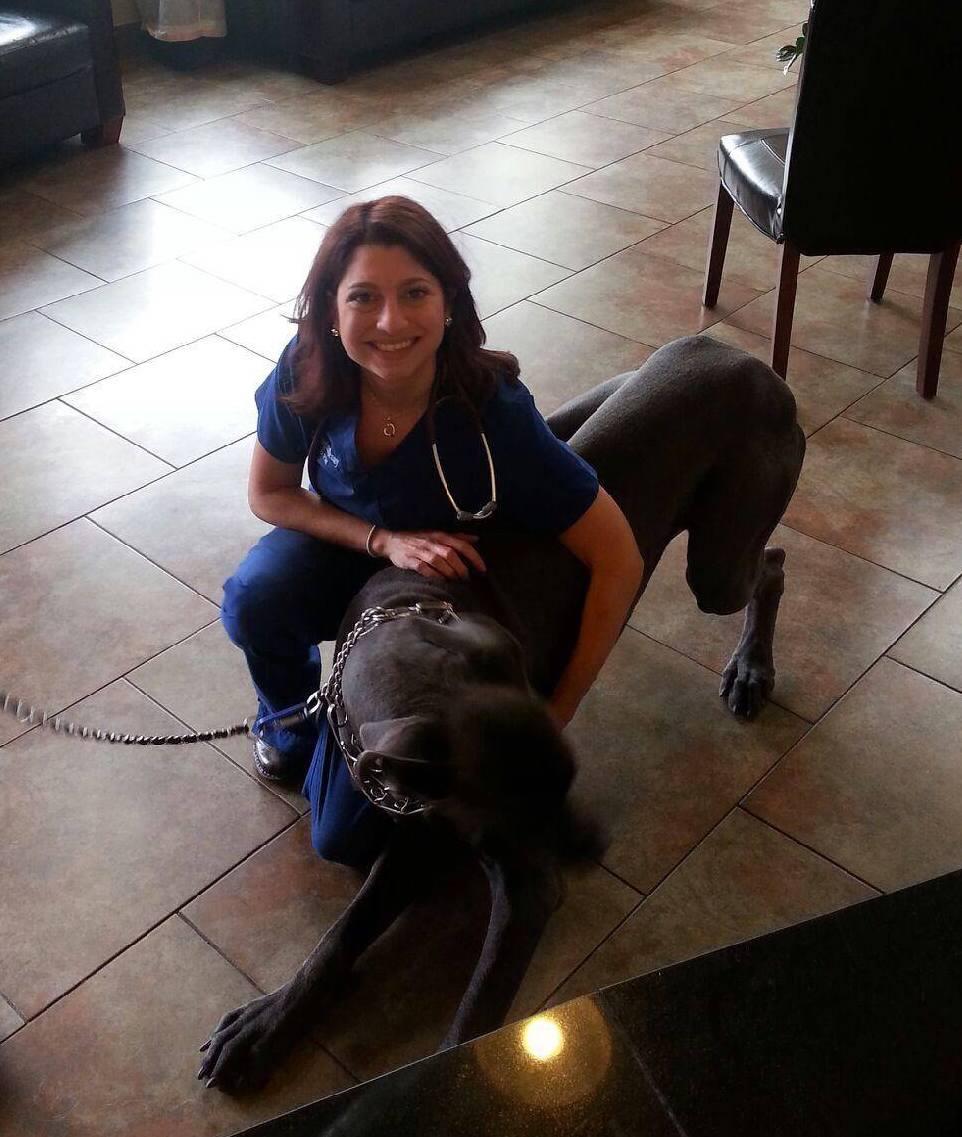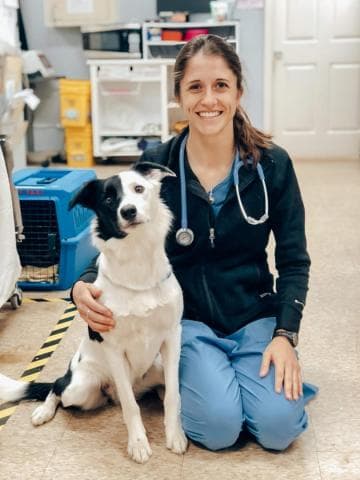The Role of Preventive Care in Good Dog Health and Longevity
As a pet owner, you want to keep your dog by your side for as long as possible. Ensuring they receive appropriate preventative care throughout their life is the best way to meet that goal. Scheduling annual wellness visits with a veterinarian guarantees your dog will receive the preventative care they need. Your vet is also a great source of information and can help you determine what you need to do to keep your pet healthy.
At GeniusVets, we believe that information about caring for dogs should come directly from veterinarians — not Dr. Google. However, we understand that pet parents often turn to the Internet to search for information about preventative care. That’s why we decided to send several dog preventative care FAQs to trusted veterinarians across the U.S. and compile their responses to give you information you can trust. We sourced the information below directly from veterinarians, but we still encourage you to contact your own veterinarian for advice or find a local vet using the GeniusVets Directory.
What is preventative care, and why is it important?
Preventative care is wellness care for dogs. It’s all about being proactive and keeping an eye on your dog’s overall condition to keep them healthy and happy for as many years as possible.
Some of the most common components of preventative care for dogs include:
- Wellness exams
- Vaccinations that suit your dog’s lifestyle
- Parasite prevention, testing, and treatment
Veterinarians can protect dogs against certain illnesses and detect and begin treatment for problems early with preventative care. What information does my veterinarian need to know about my dog's lifestyle before providing preventative care recommendations? Several lifestyle factors could impact your dog’s preventative care needs. For example, a hunting dog who spends a lot of time outside has drastically different needs than a teacup chihuahua who spends most of their time in an inner-city apartment.
Your vet will ask several questions about your dog’s lifestyle, including:
- Their activity level
- Whether they spend a lot of time outdoors or in heavily wooded areas
- If they go swimming or are near water often
- Their diet
- Whether they attend dog daycare or frequent boarding facilities
Vets consider all of these factors (and many others) when recommending vaccinations and additional preventative care services.
What recommendations will my veterinarian make when it comes to my dog's preventative care plan?
As mentioned above, this varies depending on your dog’s lifestyle. Their breed, age, and weight play huge roles, too. Talking to your veterinarian is the best way to find out your dog’s unique preventative care needs.
What should I be doing at home in terms of preventative care?
You can do several things at home to keep your dog happy and healthy. You might already be doing a lot of them!
At-home preventative care for dogs includes:
- Choosing and feeding your dog a high-quality diet
- Making sure your canine companion gets enough exercise
- Training your dog
- Providing mental enrichment to keep their brain active
Veterinarian Recommended Products for Dog Preventive Care
Preventive care is the cornerstone of lifelong health for your dog. Regular use of high-quality supplements, parasite control, skin and coat maintenance, and activity monitoring tools can help detect and manage issues early. The following veterinarian-recommended products are designed to keep your dog healthy, active, and thriving.
Supplements & Chews for Dog Preventive Care
| Product | Type | Main Purpose | Best For |
|---|---|---|---|
| Pet Honesty Probiotics | Probiotic Supplement | Supports gut health and digestion | Daily digestive support for all breeds |
| Purina Pro Plan Probiotics | Probiotic Supplement | Promotes digestive balance and immunity | Dogs prone to GI upset or under stress |
| VetriScience Healthy Hip & Joint Chews | Joint Supplement | Joint mobility and connective tissue support | Joint protection and flexibility |
| Nutramax Cosequin Joint Supplement | Joint Supplement | Max strength joint support and comfort | Dogs with advanced joint needs |
| Nutramax Imuquin Immune Supplement | Immune Support | Enhances immune response | Dogs with weakened immune systems |
| Veterinary Formula Senior Joint Supplement | Joint Supplement | Supports aging dogs' joint health | Senior dogs with joint stiffness |
| Virbac Hip Joint Soft Chews | Joint Supplement | Advanced joint care for large dogs | Large breeds with joint concerns |
| Vetnique Glandex Anal Gland Chews | Digestive & Anal Gland Support | Promotes anal gland health and digestion | Dogs who scoot or need fiber support |
| SnipCaps Omega 3 Capsules | Omega-3 Supplement | Skin, coat, and anti-inflammatory support | Large dogs with skin or joint issues |
Top Picks
For all-around joint support, Nutramax Cosequin is a trusted and vet-recommended supplement that supports mobility and comfort at any age.
If you're focused on immune and digestive wellness, Pet Honesty Probiotics offer a gentle, daily way to support gut health and resilience.
Try Pet Honesty Probiotics Here
Looking for healthy aging support? Virbac Hip Joint Soft Chews deliver targeted joint care for large or senior dogs.
What is the difference between insurance and a wellness plan?
Wellness plans cover wellness visits and things like routine vaccinations and annual exams. Some plans even cover routine dental care. On the other hand, pet insurance will pay for the care your dog needs if they are ever seriously sick or injured.
Should I get pet insurance?
Yes! With a good pet insurance policy, you will always be able to do what is best for your dog without having to worry about the financial cost. While you may be able to budget for annual expenses like vaccinations and exams, insurance gives you peace of mind that you’ll be able to cover the cost of unexpected health problems.
How can I keep my dog safe while in the car?
Every dog owner loves the idea of their dog happily hanging their head out the window with their ears and tongue flapping. Unfortunately, it’s not safe. Dogs need to be secured inside the vehicle. Sorry — no riding in the back of a pickup truck!
Keep your dog safe by securing them in the back seat with a safety harness that attaches to the seatbelt or your car’s latch system. The other option is a sturdy crate secured in your vehicle’s cargo area.
Why do I need to keep my dog on a leash when in public?
Veterinarians recommend keeping your dog leashed in public for their safety and the safety of other pets and people. Most dogs — even those who are trained — don’t listen well enough off-leash. Without a leash, you have no way of stopping your dog if they decide to chase a squirrel or another animal. Many people fear dogs, too. And your canine companion might be too much for a small child.
You are responsible for your dog and for keeping them under control. Keeping them on a leash while in public is the best way to maintain control and keep your pet safe.
When I'm exercising my dog, when can they be off-leash?
As mentioned above, keeping your dog leashed while in public is best. You should only exercise them off-leash when in a secured environment where you have control over who (or what) your dog will come in contact with. Familiarize yourself with the on and off-leash ordinances in your area.
What can I do to keep my house and yard pet safe?
Fencing in your yard is the best way to make it safe for your dog. Check the fence regularly to make sure there are no holes or other damage. And when your canine companion is outside, make sure they have access to adequate shade and water.
Inside, keep cleaning supplies and chemicals out of your dog’s reach. Make sure your trash cans are inaccessible, too. Depending on your dog’s breed, size, and lifestyle, you might need to take additional steps to keep them safe.
Ways to keep your dog safe at home and in the yard include:
- Installing gates to keep them out of certain areas
- Setting up ramps for smaller dogs to prevent injuries from jumping
- Providing adequate ventilation in kennels
- Maven Smart Dog Collar – Tracks your dog’s activity, rest, and movement for health insights and location safety.
What pesticides are harmful to my dog?
Pesticides are designed to kill something. As such, they are harmful to dogs. Even if the dose is not strong enough to cause death, it could cause long-term bleeding or neurological disorders in your canine companion.
Rodenticides, including mouse and rat killers, are some of the most common household pesticides, and they’re extremely toxic to dogs. If you use these products, place and store them where your dog cannot get to them.
If you have an exterminator, check with them to determine what pesticides they use and what precautions are necessary. Make sure they know you have a dog, and ask them only to use products that are pet-safe.
What are common health issues that can be prevented with wellness care?
Vaccines are a key component of wellness care, and they prevent a wide range of potentially deadly diseases.
Vaccines protect dogs against several illnesses, including:
- Rabies
- Distemper
- Adenovirus
- Parvovirus
- Parainfluenza
- Lyme
- Leptospirosis
Other health issues that wellness care can prevent include:
- Diabetes
- Osteoporosis
- Dental disease
If you still have questions regarding your dog’s preventative care needs, the AVMA is an excellent source of information, and so is your veterinarian! If your pet does not have one yet, we can help you find a trusted local veterinarian.
The Following Veterinarians
Contributed To The Dog Preventive Care Information On This Page


The Ultimate Guide
to Dog Care
This free guide is an indispensable manual for dog ownership. Filled with veterinary advice and recommendations on every important topic at each stage of your dog’s life, this is all the stuff that responsible dog owners need to know. That is why we are making it free!




